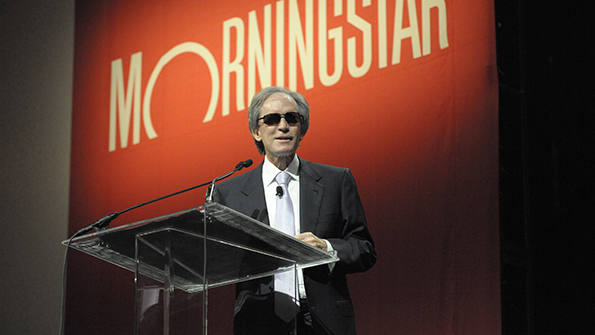
Financial advisor and Bloomberg View columnist Barry Ritholtz wonders why, with Greece on the brink of collapse, stock markets down 2 percent in one day and volatility spiking, the price of gold has not moved higher. “I thought gold was an investor’s best friend during Armageddon,” says Ritholtz. Gold bugs have always pushed the “catastrophe metal” as a safe haven from economic turmoil, hyperinflation and a collapsing currency, yet in recent days “gold can’t find a bid,” he writes. Why? The story for gold has long been “a clever sales pitch filled with specific frightening details” but one that no longer resonates, particularly as other asset classes outperform it and the economy is improving.
Gross Brings Former PIMCO Pal to Janus

Janus Capital Group has acquired a 51 percent stake in Kapstream Capital, a Sydney-based unconstrained bond manager with $6.6 billion in assets under management, for $85 million in upfront cash. Bill Gross, who will continue to lead the Janus Global Unconstrained Bond strategy, used to work with Kapstream co-founder Kumar Palghat at PIMCO. Palghat will serve as co-portfolio manager of the fund. Kapstream was founded by Palghat and Nick Maroutsos in 2006. Janus will have the option to purchase the remaining 49 percent interest in Kapstream in the future.

With Congress threatening to cut the Labor Department's funding in order to restrict its fiduciary rulemaking efforts, advocates for both sides are making louder noise. FSI released a one-page document earlier this week with ten bullet points, each starting with a letter in the word "unworkable" to describe why the proposal is just that. that used each letter in the word "unworkable" to explain groups are going on the attack. Better Markets derided it as a “gimmick.” "The only thing ‘unworkable’ is a business model that puts brokers first and their clients second,” said Better Markets head Dennis Kelleher.

A new report from the Investment Company Institute and Brightscope found that 403(b) plans - defined contribution retirement plans for public educators and employees of some non-profits - are getting cheaper. From 2009 to 2012, the average total plan cost fell five basis points to 0.75 percent of assets. The average participant was in a lower-cost plan (58 basis points in 2012 compared to 68 in 2009) and the average dollar was invested in a plan with a total cost of 51 basis points (down from 0.59 in 2009). One cause could be plan sponsors and investors becoming more conscious of fees, a senior director at ICI said.




